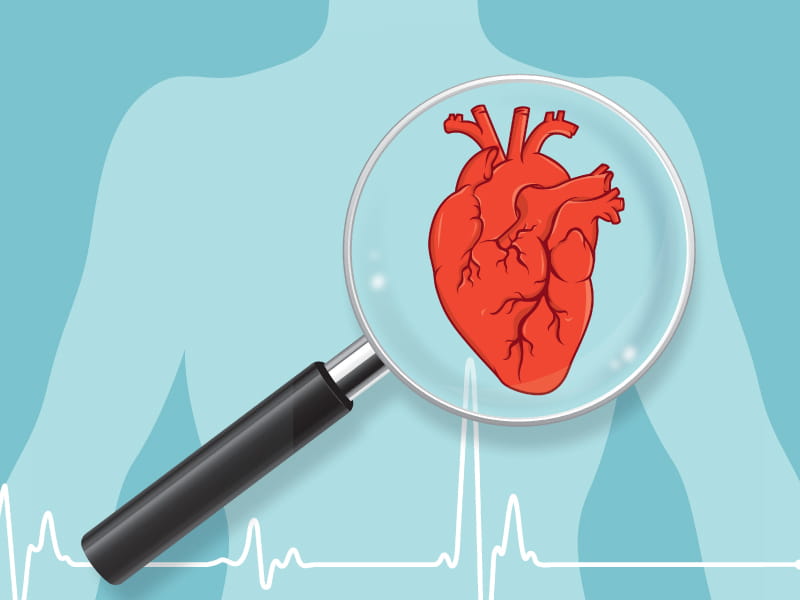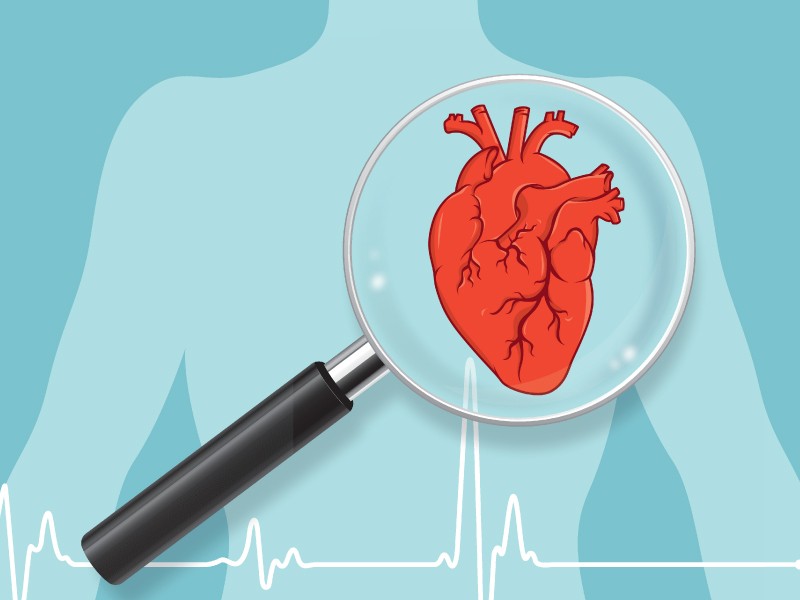Table of Contents
The heart is an indispensable organ that works constantly, without ever pausing to rest. Its main function is pumping blood oxygen from the lungs to the rest of the body. Stopping to function for a few seconds means death. If stopping beating eventually lead to death, abnormal functioning is nothing but troubles, what scientist called heart disease. Heart disease is a medical jargon used to describe a wide range of diseases of the heart and blood vessels that affect the functions of the heart. Some of those diseases include:
Alcoholic cardiomyopathy
Aortic regurgitation
Aortic stenosis
Arrhythmias
Cardiogenic shock
Congenital heart disease
Mitral valve prolapse
Peripartum cardiomyopathy
Coronary artery
Pulmonary stenosis
Stable angina
Unstable angina
Tricuspid regurgitation
Endocarditis
Heart attack
Heart failure
Heart tumor
Idiopathic
Hypertrophic cardiomyopathy
Ischemic cardiomyopathy
Acute mitral regurgitation
Chronic mitral regurgitation
Mitral stenosis
Coronary artery disease (CAD)Dilated cardiomyopathy
Heart disease is the first cause of death in developed countries. According to the American Heart Association, 58 million Americans have one or more of the forms of heart disease mentioned above. Each year 1.5 million people suffer a heart attack; 250,000 will die before they reach hospital. In the United States alone, heart disease kills one person every 34 seconds. Most of those individuals had minor signs of the disease. You should take any symptom of heart disease you resent seriously.
Heart Disease Causes and Risk Factors
Causes of heart diseases are divers. It is not easy for a cardiologist to detect factors causing a heart problem in a patient by a simple exam. In addition, symptoms and signs may vary from a person to another. However, most of times, heart disease is caused by the environment, age, gender, lifestyle, stress, tobacco, or unhealthy diet.

Age – The incidence and risk of heart disease increases, as you get older.
Family history – Some people are particularly predisposed to developing heart disease due to inherited genetic factors
Gender- Men have more heart attacks than women do, but women have a higher death rate.
Lifestyle – inadequate physical activity or exercise is one of the main causes of cardiovascular disease
Obesity – being overweight increase the risk of Coronary artery disease considerably
Stress – stress makes your blood pressure goes up, which can cause heart disease and other health problems. Besides heart disease, stress affects the immune system leading to many so-called incurable diseases of our times
Diseases – certain disease such as diabetes mellitus, hypertension, hyperhomocysteinemia and hypercholesterolemia can be associated with cardiovascular disease
Tobacco – besides cancer, cigarette smoke is the leading cause of cardiovascular disease. Three out of four deaths from heart disease are related to smoking
Foods – A diet rich in soluble fiber and omega-3 may lower your risk of heart disease. The same, cardiovascular risks are considerably increased when you consume an unhealthy det rich in:
- Cholesterol and especially the bad (LDL) cholesterol
- Triglycerides (they are necessary for your heart health, but high levels tend to harden and narrow your arteries)
- Homocysteine, an amino acid in yur blood; it increases 3 times your risk of coronary heart disease.
- Fast and slow carbohydrates – they release insulin, which in turn, promotes formation of cholesterol and fats.
 Cholesterol is a waxy, fat-like substance found naturally in all parts of your body. To work properly, your body needs it. The problem occurs when you have too much in your blood. Excess cholesterol in the bloodstream adheres to the interior walls of your arteries and forms a medical disorder called plaque. Plaque can narrow or block your arteries and prevent normal blood flow. Any blockage of the blood flow can lead to serious life threatening conditions such as heart attack and stroke.
Cholesterol is a waxy, fat-like substance found naturally in all parts of your body. To work properly, your body needs it. The problem occurs when you have too much in your blood. Excess cholesterol in the bloodstream adheres to the interior walls of your arteries and forms a medical disorder called plaque. Plaque can narrow or block your arteries and prevent normal blood flow. Any blockage of the blood flow can lead to serious life threatening conditions such as heart attack and stroke.
Very often, when a patient has high cholesterol, he is prescribed drugs (generic Simvastatin, pravastatin Atorvastatin, etc.). They are indeed effective in controlling the blood cholesterol levels, but sometimes cause muscular side effects. Moreover, once the treatment is interrupted, cholesterol is back quickly because the problem is not resolved. Overcoming high levels of cholesterol in your blood requires more than taking medications, you need a radical change of lifestyle.
Heart Disease Warning Signs and Symptoms
Because each type of heart disease has different symptoms, it is often difficult to recognize a specific form of heart disease by a unique symptom. In women, symptoms are often less obvious and unnoticed. They can include rapid heartbeat, burning pain, pain or pressure in the chest, nausea, sweating, shortness of breath, back pain, or sudden fatigue. Men can experience the same warning signs. However, since other diseases have similar symptoms, neither patients nor their doctors can relate these symptoms to heart problem without medical exams.
Consult your doctor immediately if you have any of these heart attack warning signs:
- Chest pain
- Feeling of fullness
- Burning pain,
- Chest discomfort
- Shortness of breath
- Dizziness
- Nausea
- Sweating
- Weak pulse
- Pain spreading from the center of your chest to your neck, one or both arms, your shoulders or jaw
Hear Disease Diagnosis
The type of diagnosis depends on the type of symptoms and signs you have. Usually, at least one of the following tests is done to confirm a heart disease diagnosis:
Nuclear Heart Scan – this is a Precordial exam (cardiac exam) that allows your cardiologist to evaluate the health of your heart. During the procedure, a radioactive material called tracer is used to examine your left and right ventricular functions. Doctors recommend this test to see if the heart normally pumps blood through different parts of your heart muscles. Because, most of the times, left ventricular function is impaired in individual with heart failure.
Cardiac stress test – also called exercise stress test, cardiac stress test is an examination done by a cardiologist as a part of heart disease diagnosis. The test submits your cardiovascular system to a short and intense effort, which allows your physician to measure your heart rate and detect cardiovascular problems: imbalance of blood flow to your heart, abnormal blood pressure, and shortness of breath. The cardiac stress test helps your cardiologist to prescribe appropriate treatment or recommend other more specialized tests such as coronary angiography or myocardial scintigraphy.
Coronary CT angiography – Angiography is a medical imaging technique used to study your blood vessels that are not visible on standard X-rays. When the test used to explore your arteries, it is called arteriography; phlebography when it is performed to explore your veins.
Echocardiogram – This painless exam allows to your cardiologist, using sound waves, to view your heart in motion on a screen. The images show if your heart muscle is working well. Echocardiogram also provides anatomic information of your heart such as size and shape.
Electrocardiogram (ECG) – ECG is a graphic representation of electric potential that controls the activity of your heart muscle. This painless test can be done in a doctor’s office, hospital or at home. However, its interpretation remains complex and requires a health care professional.
Magnetic resonance angiography (MRA) – MRA is the study of your vascular wall and blood flow using radiowaves and a magnetic field. It is done through techniques based on dynamic hemodynamic properties and different physical and chemical properties of your blood. The magnetic resonance angiography (MRA) has become a reliable exploration of vascular disease in recent years.
Heart Disease Treatment
Treatment of cardiovascular disease includes a wide variety of methods including surgery, drugs, and herbal remedies. Talk to your doctor to know which option is best for you:
Surgery – Cardiac surgery can treat diseases of the heart and thoracic great vessels. Depending on your problem, your cardio-surgeon can do a: coronary artery bypass, heart valve repair or replacement, thoracic aortic surgery, and more
Drug therapy – In the United States, drugs prescribed depend on the form of heart problems you have. Thus, groups of medications commonly used to treat heart disease include:
Angina (when your heart muscle does not get enough blood):
- Beta Blockers
- Calcium channel blockers
- Nitroglycerin (NG)
- Aspirin (75 mg to 100 mg)
- If inhibitor.
High cholesterol:
- Fibrates
- Resins
- Niacin (vitamin B3)
- Statins (HMG-CoA reductase inhibitors)
- Cholesterol Absorption Inhibitors.
Heart failure:
- Beta Blockers
- Diuretics
- Digoxin
- Spironolactone (Aldactone, Novo-Spiroton, Spiractin, Spirotone, Verospiron or Berlactone)
- Inhibitors of Angiotensin-Converting Enzyme (ACE inhibitors).
Hypertension:
- Angiotensin II Receptor Blockers (ARB)
- Beta Blockers
- Vasodilators
- Diuretics
- Calcium channel blockers
- Inhibitors of Angiotensin-Converting Enzyme (ACE inhibitors).
Other:
- Anticoagulants
- Antiplatelet agents.
Heart Disease Prevention
When it comes to heart problems, the smartest choice is prevention. To prevent heart disease or its complications, it is vital to avoid, as along as it is possible, all factors risking its development: cholesterol, hypertension, obesity, inactive lifestyle, etc. The following steps can help you live a life free of cardiovascular disease:
- Do not smoke; quit if you are already a smoker
- Monitor your blood pressure regularly
- Exercise regularly
- Avoid bad stress ; laugh and relax whenever it is possible
- Eat a healthy diet:
- Avoid red meat in your diet; eat lean eat moderately, and hours before going to bed
- Avoid all bad fats in your diet – Cook with vegetable oils such as extra virgin olive oil and sunflower oil
- Eat foods rich in enzymes and fiber: fruits and cruciferous, peas, barley, brown rice, whole grain bread, beans and lentils.
- Drink low fat milk: Skimmed milk or milk containing 1% fat – eat lean yogurt and cottage cheese containing 2% fat or less, and cheese containing less than 15% fat.
- Limit salt and salted foods – since your body needs salt to survive, try to avoid or replace salt with herbs and spices or savory ingredients: tarragon, basil, curry, garlic, lemon juice, flavored vinegars, etc.
References:
American Heart Association, Heart Attack, Stroke and Cardiac Arrest Warning Signs,identifier=3046038
Can Fam Physician ,Le médecin de famille et la prévention de la maladie de cœur, v.15(11); Nov 1969
Veasy LG, Wiedmeier SE, Orsmond GS, Ruttenberg HD, Boucek MM, Roth SJ, Tait VF, Thompson JA, Daly JA, Kaplan EL, et al. Resurgence of acute rheumatic fever in the intermountain area of the United States. N Engl J Med. 1987 Feb 19;316(8):421–427. [PubMed]
McIsaac WJ, White D, Tannenbaum D, Low DE. A clinical score to reduce unnecessary antibiotic use in patients with sore throat. CMAJ. 1998 Jan 13;158(1):75–83. [PubMed]
Michael Jerosch-Herold (2004). “Analysis of myocardial perfusion MRI”. Journal of Magnetic Resonance Imaging 19 (6): 758–770. doi:10.1002/jmri.20065. .
European Heart Journal Advance Access originally published online on October 7, 2005
European Heart Journal 2005 26(23):2529-2536; doi:10.1093/eurheartj/ehi586
http://www.americanheart.org/downloadable/heart/1107369401339FS06INTSrev0119.pdf



